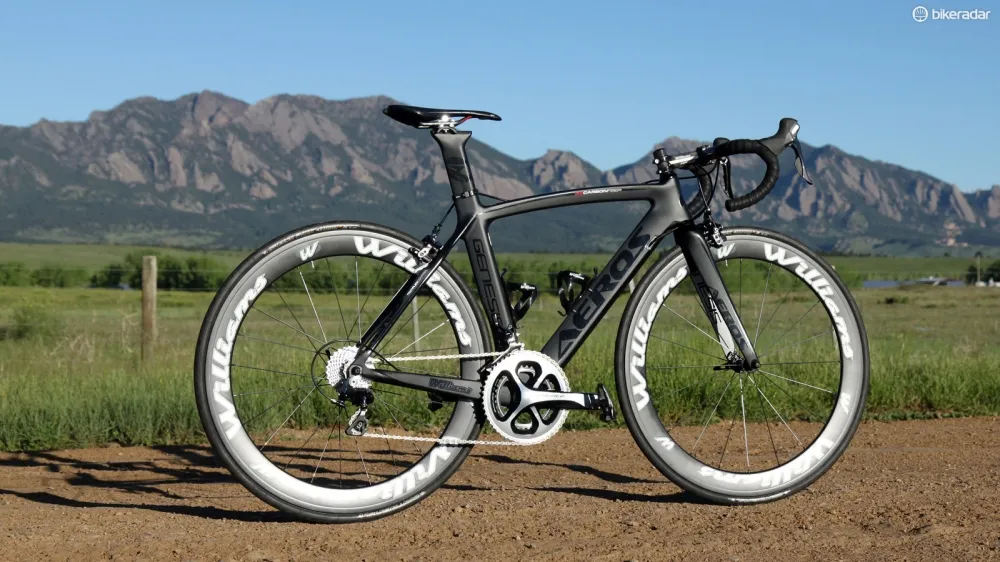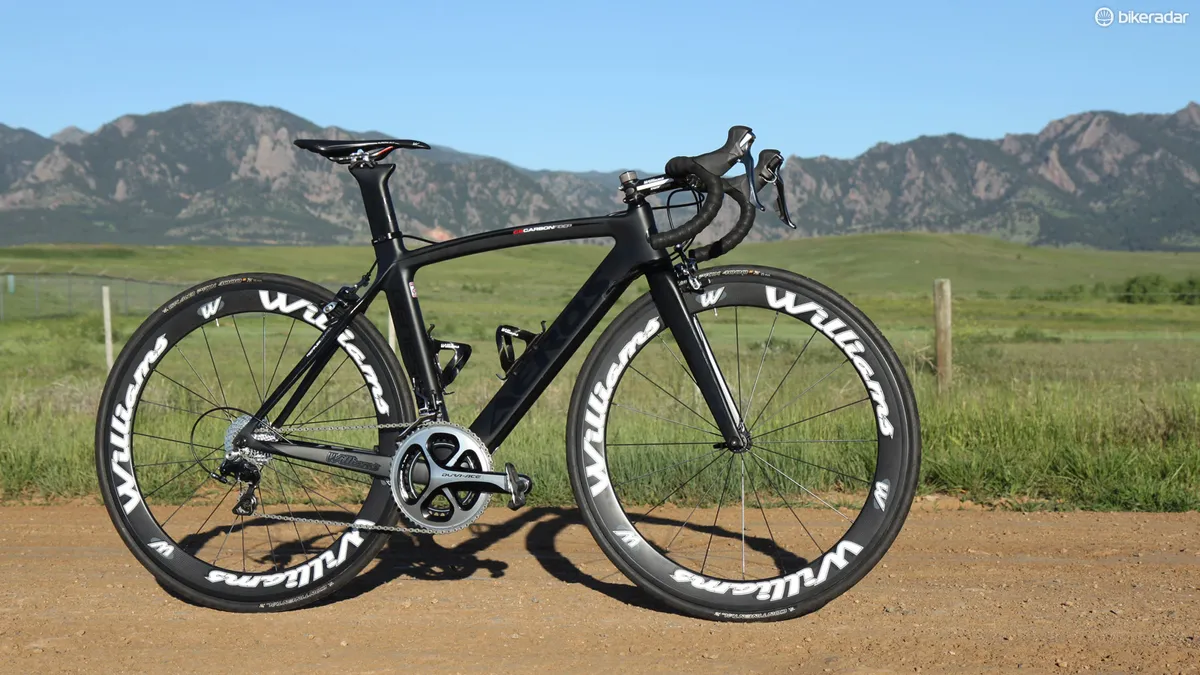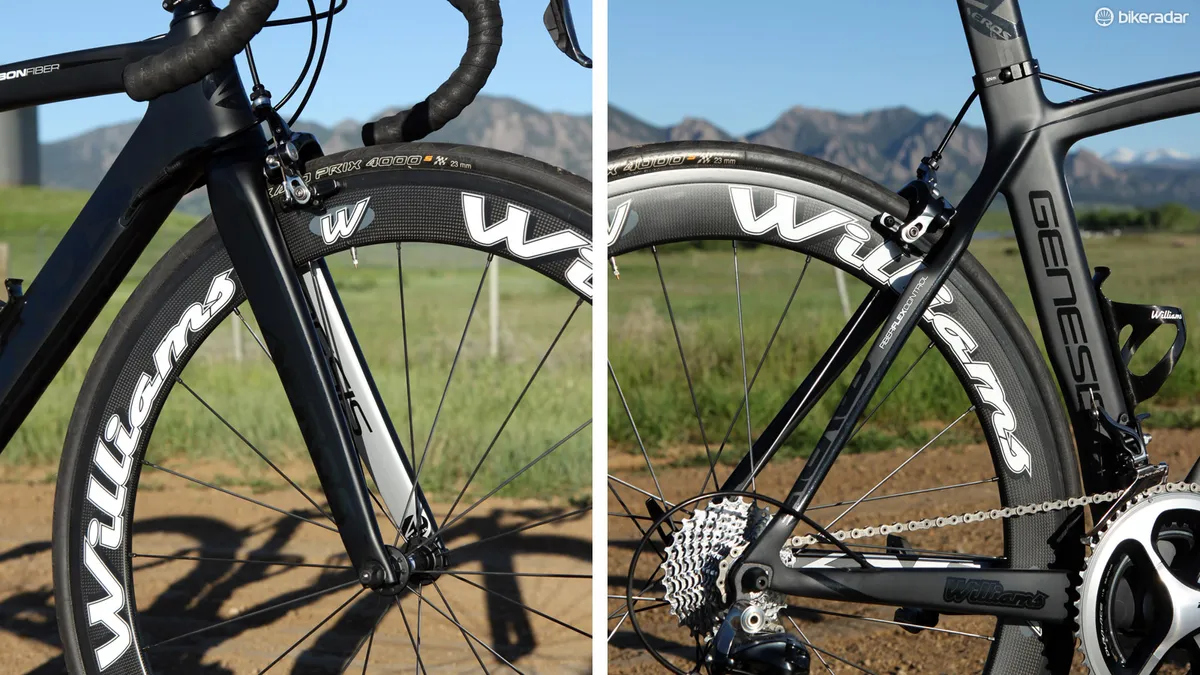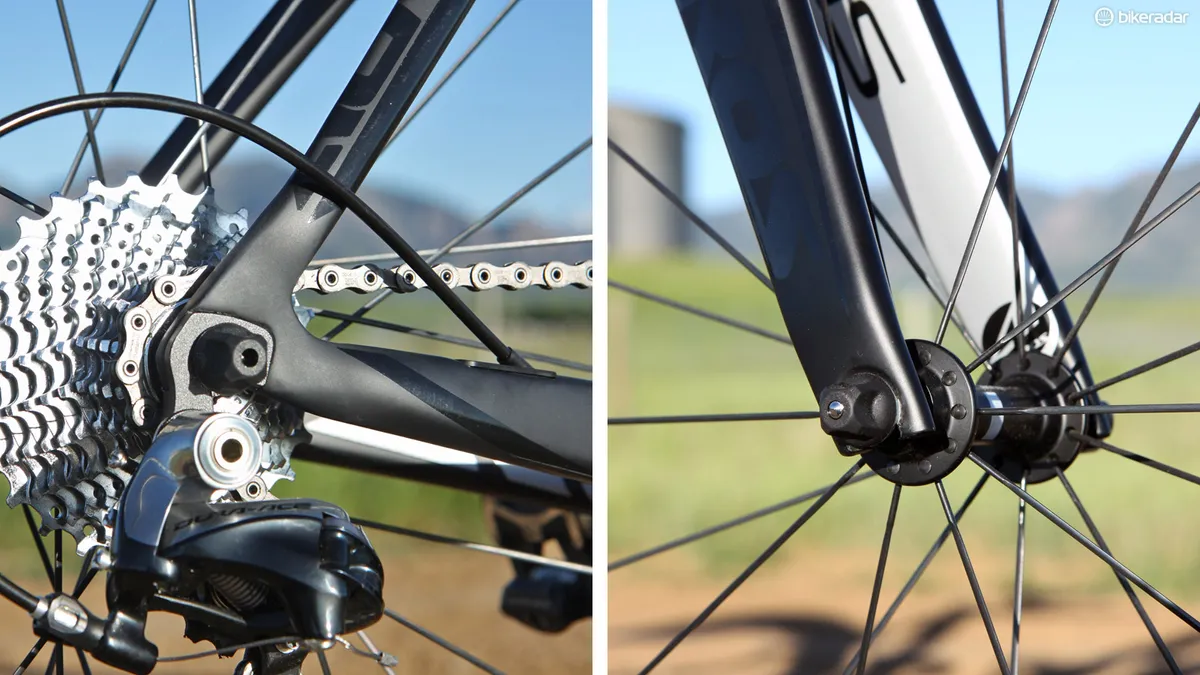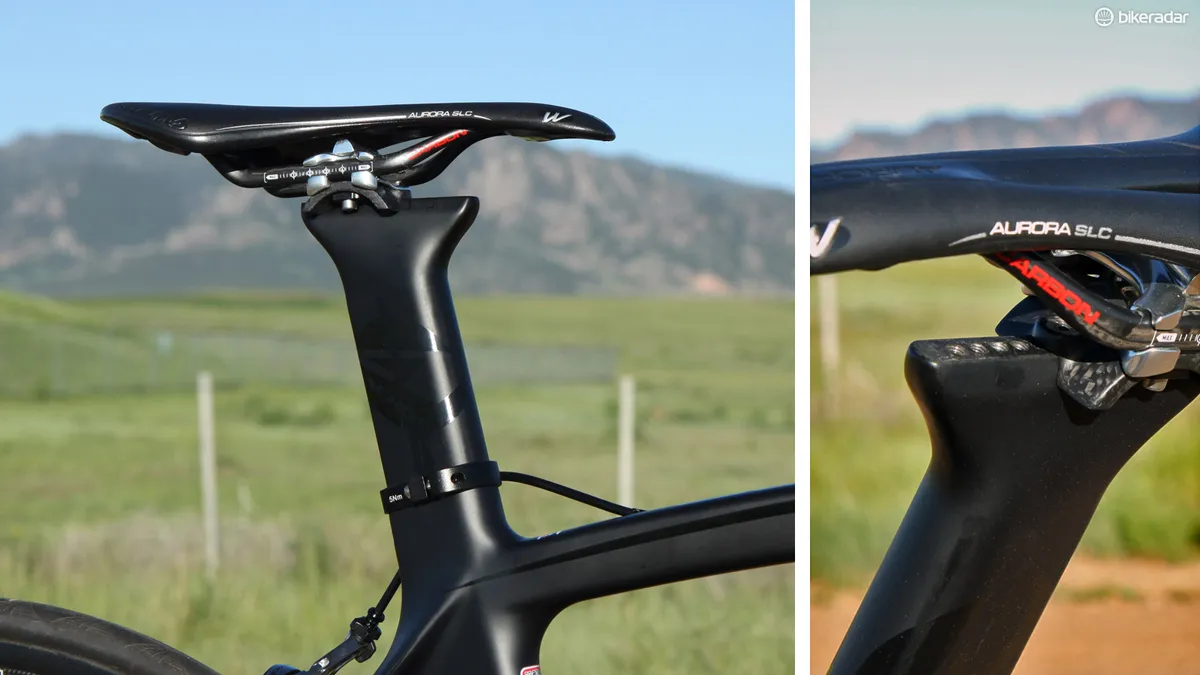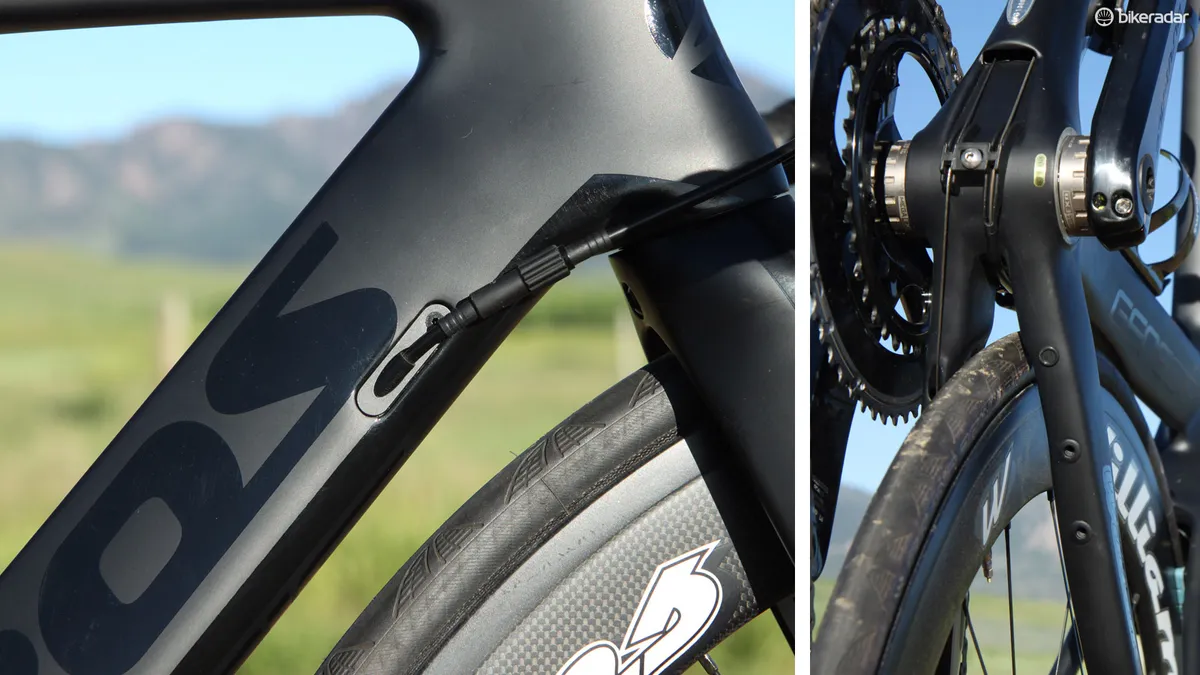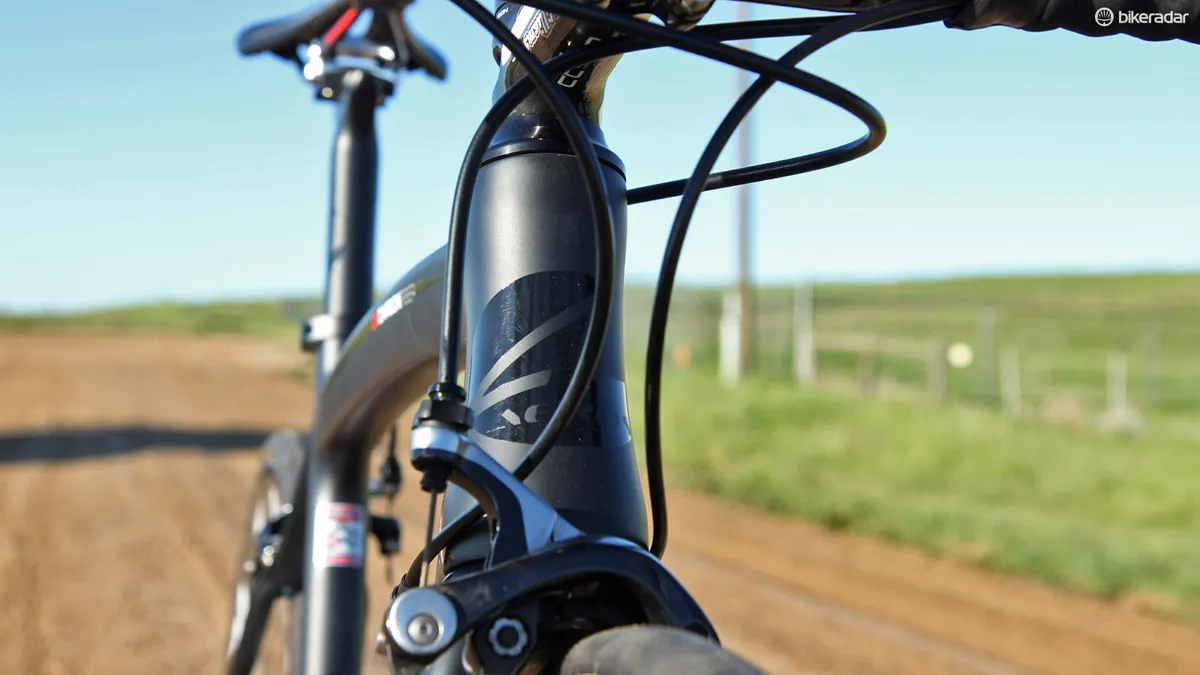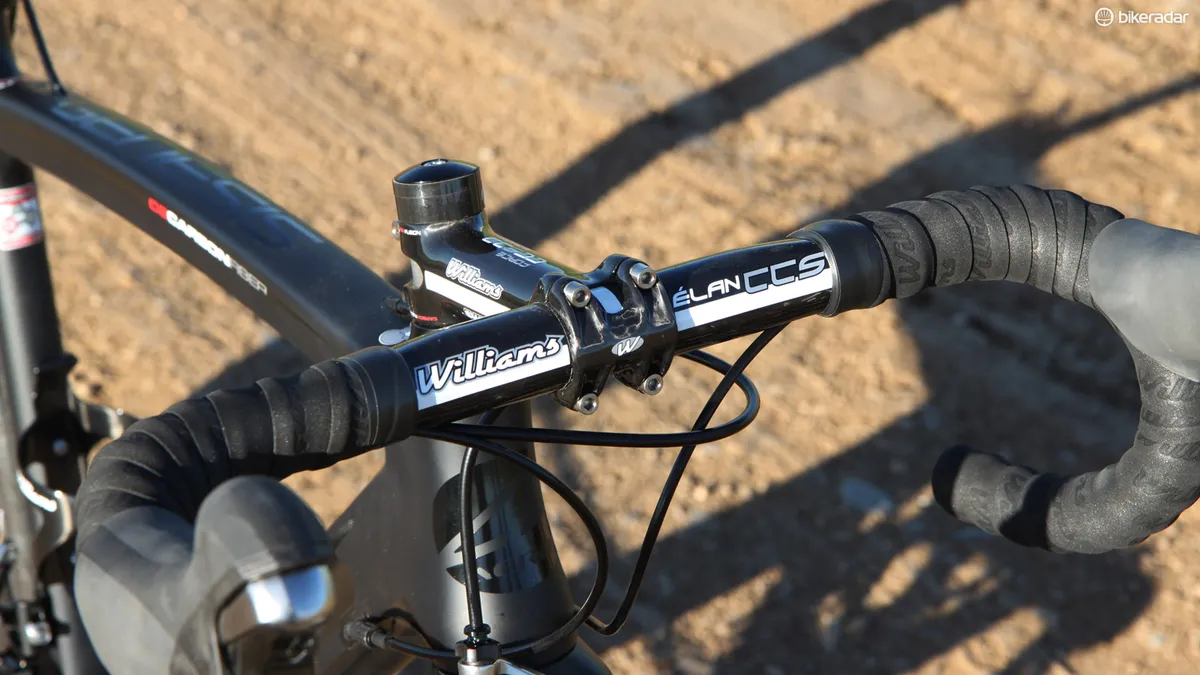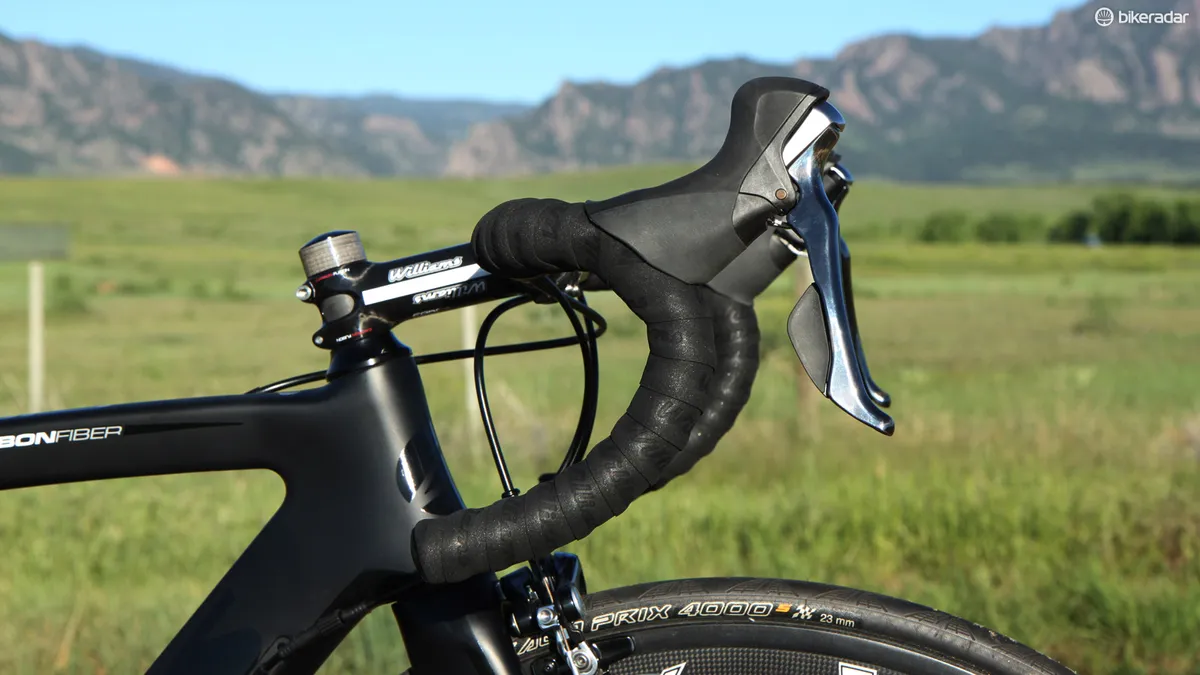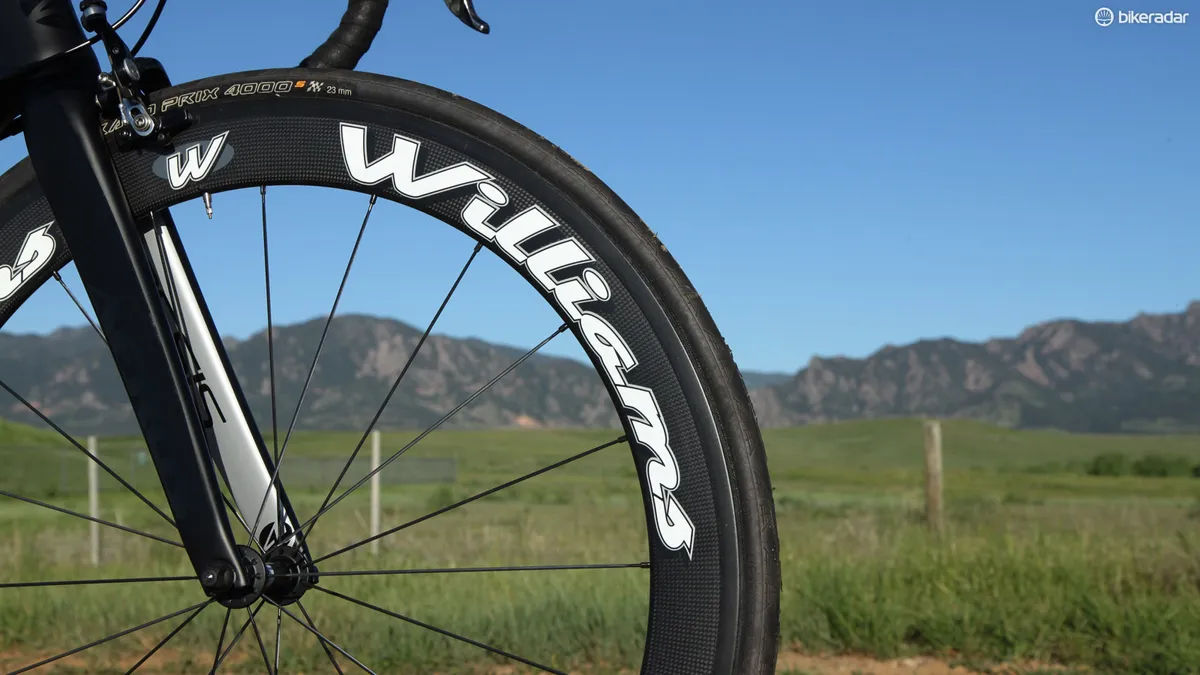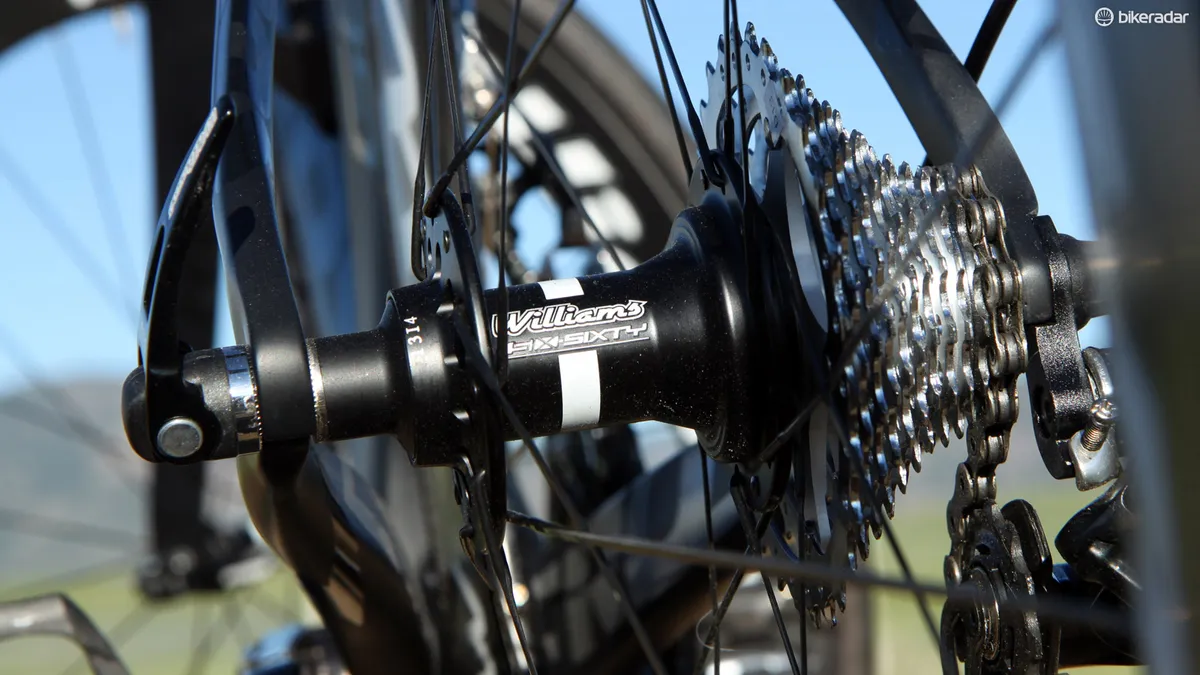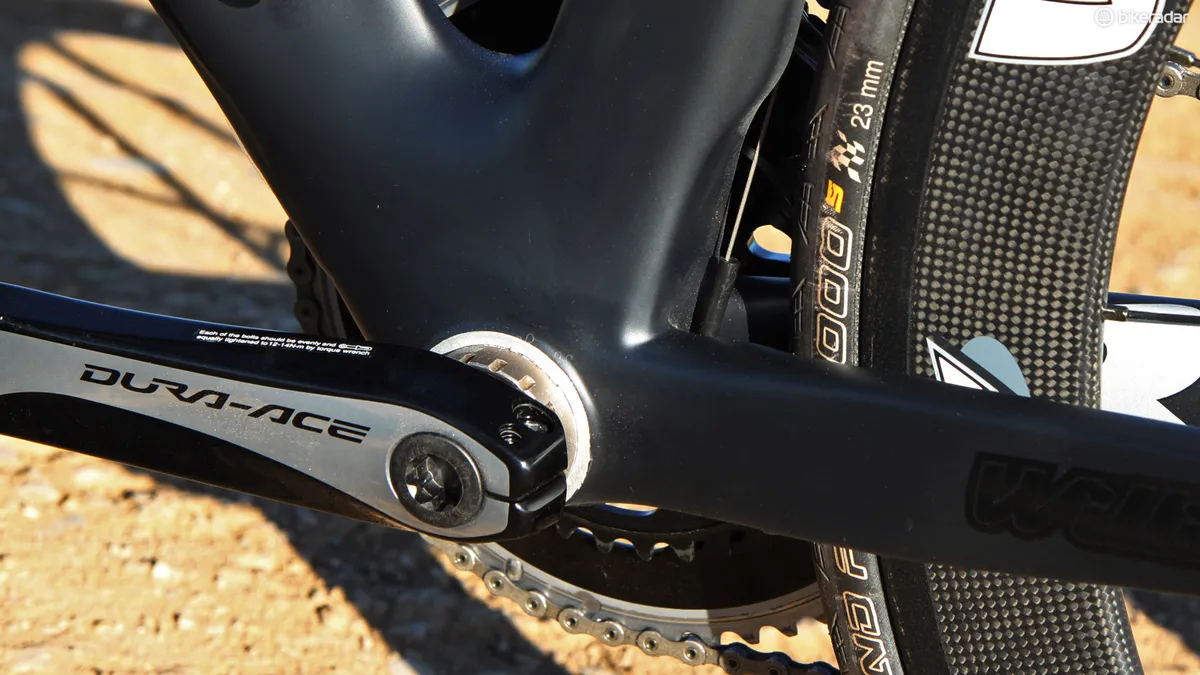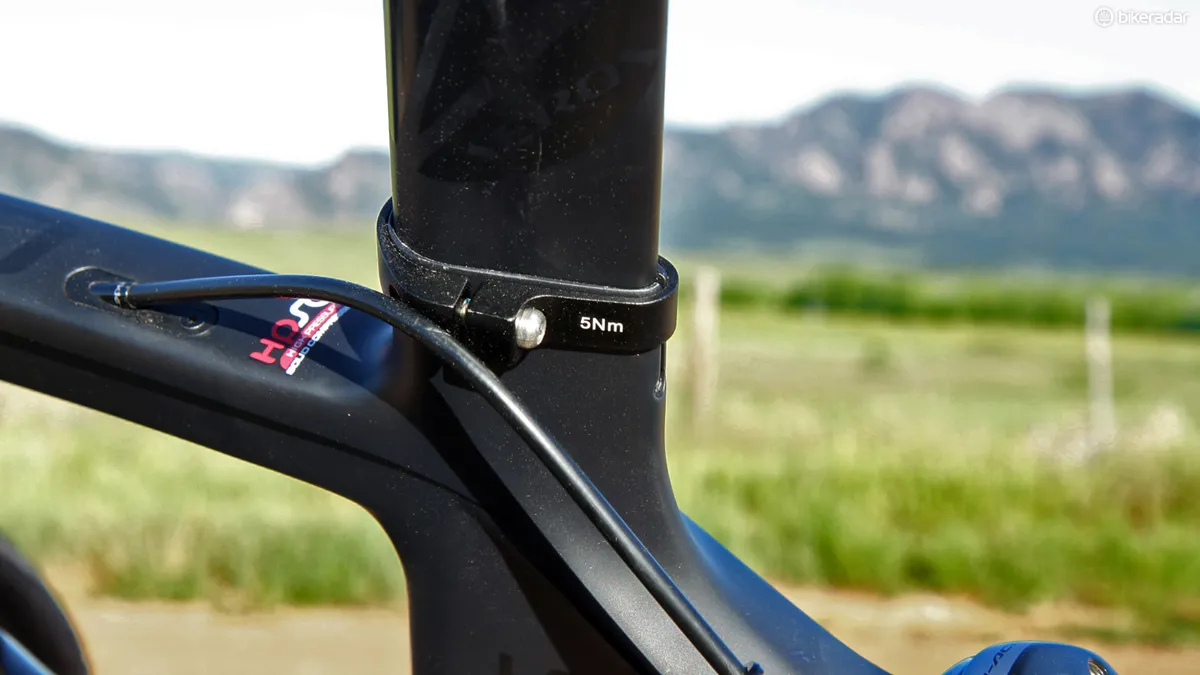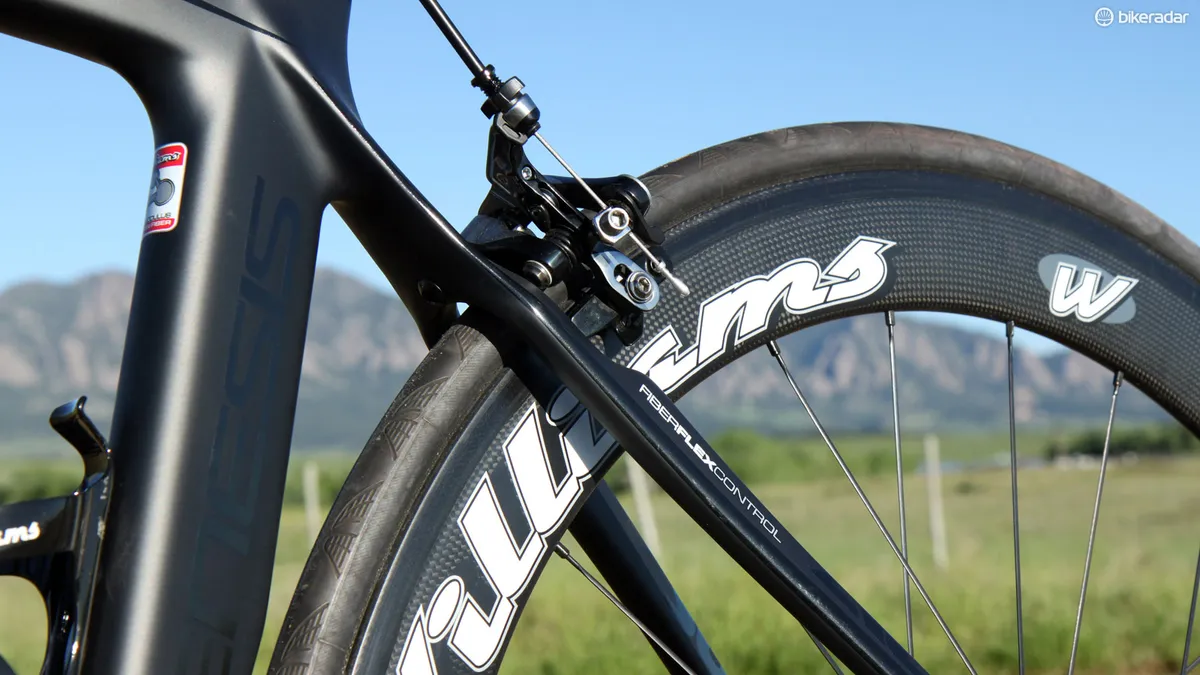Williams Cycling made its name selling high-quality road wheelsets at reasonable prices, and now the company has applied that same business model to a small range of road framesets. The top-end Aeros Genesis carbon model certainly looks the part of an edgy, aero road racer – but its personality has proved to be surprisingly mellow.
- Highs: Awesome complete bike price, very smooth ride, sleek aesthetics, lots of build options
- Lows: Not very stiff, some details could use more refinement, prone to crosswinds, questionable carbon clincher heat durability
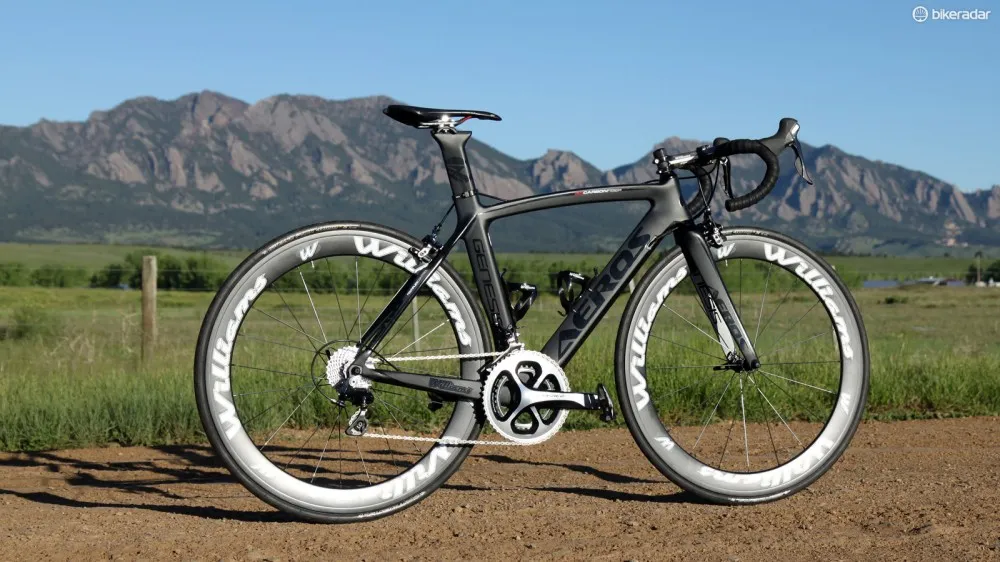
The Aeros Genesis from Williams Cycling certainly looks the part
Ride and handling: Smooth ride, medium-soft backbone
The Aeros Genesis looks every inch an efficient, hyperactive, wind-cheating road racer, with its teardrop-shaped tube profiles and matching aero carbon seatpost, menacing black-on-black graphics, an aggressively short head tube, and a generally purposeful appearance that's visually begging to hit the start line – especially with deep-section carbon wheels fitted, as was the case with our test sample.
In the saddle, though, the Aeros Genesis is surprisingly tame – with a personality that's more casual endurance bike than uncompromising racer. While the deep tube sections and burly-looking seatpost suggest a rough ride quality, for example, the Aeros Genesis is remarkably smooth on broken surfaces. Even with standard 23mm-wide tyres fitted, we repeatedly stopped to verify pressures during test sessions.
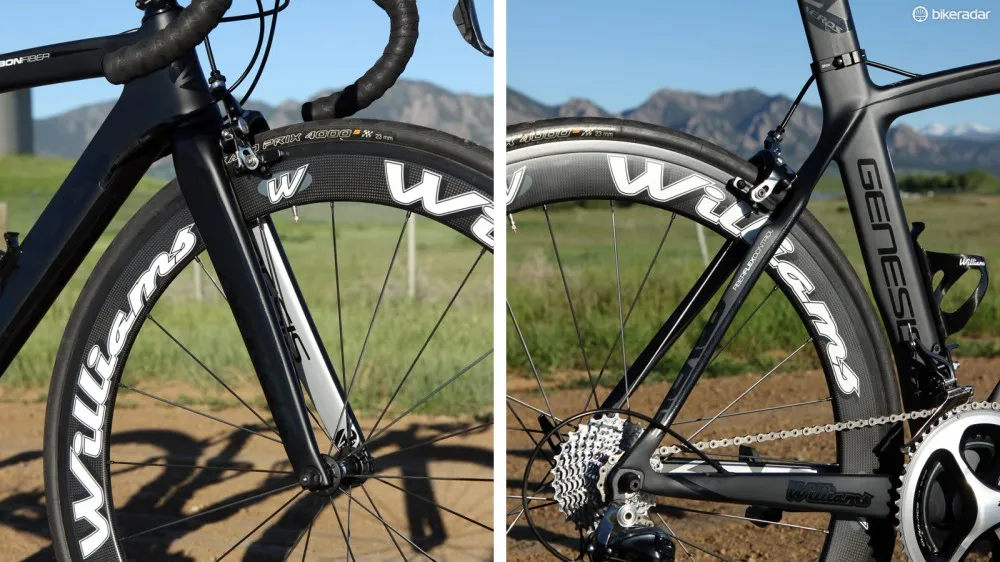
Despite the deep tube sections, the ride is very comfy
Ultimately, the Aeros Genesis became a go-to option for longer rides when we didn't want to feel beat up by the time we got home.
That softness also carries over to more performance-oriented aspects, however. While the Aeros Genesis isn't quite a wet noodle when you mash on the pedals, it's far from the stiffest chassis we've tested, and is definitely a few steps behind the best on tap from major labels. Fierce sprints for the line or uphill jumps out of the saddle don't return the instant responsiveness many racers will expect, and there's a noticeable delay between input and output.
That said, the Aeros Genesis does maintain its momentum very well once you've got it up to speed. Given the full aero treatment of the shaped frame and deep-section wheels, we found it tangibly easier to chase people down on one of the most popular routes out of town – which perhaps shouldn't be entirely surprising since aerodynamic benefits make themselves most known at higher speeds.
While more modern aero frame designs have moved away from pointy tailed teardrops to more versatile truncated shapes – and newer wheels to fatter and more blunt-nosed sections – our test bike's more traditional tubes and rim profiles also made it more susceptible to crosswinds. That same stretch of road is renowned for persistent crosswinds and we experienced noticeable buffeting that required regular steering corrections to stay on track.
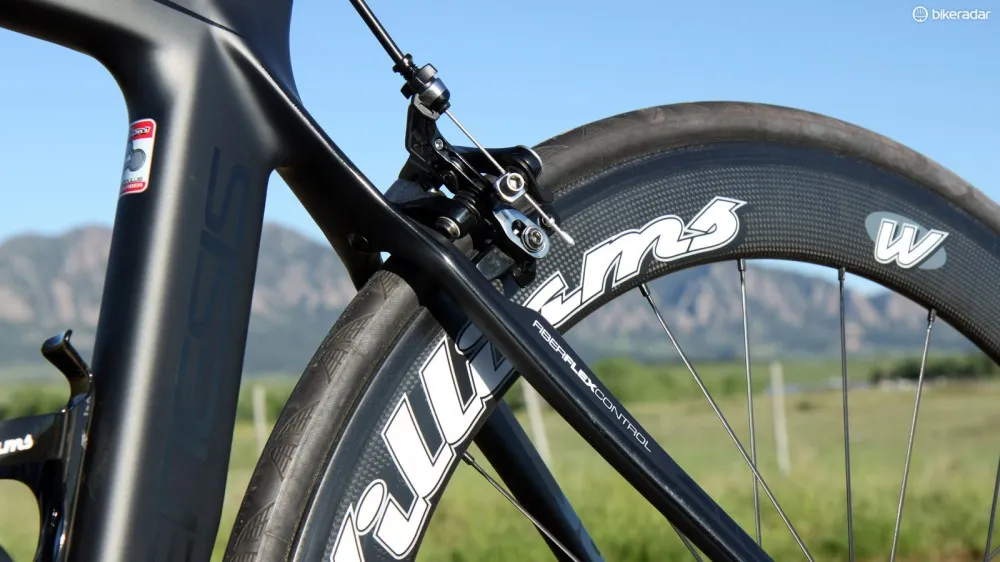
Between the traditional aero tube shapes and deep-section wheels, the Aeros Genesis was occasionally tricky to control in crosswinds
During one particularly high-speed descent back into town (where speeds nearly crested 80km/h), we also felt slightly increasing instability up front in anything but calm winds. The sensation was far from unmanageable but nevertheless, it wasn't exactly a situation where we felt comfortable sitting up and pulling on a vest.
While the ride quality and stiffness more closely mimic an endurance machine, the bike's handling is definitely more in keeping with the bike's competitive aesthetics. Turn-in is quick and sharp – though not twitchy – and it's easy to adjust your line in mid-corner given the relatively short wheelbase.
If all of this comes across as a bit contradictory, that more or less describes our feelings, too. Ultimately, we felt the Aeros Genesis to be analogous to a GT car: visually promising, nice to look at, and comfortable cruising at high speeds on a reasonably wide range of road surfaces, but a bit too softly sprung for true sporting intentions.
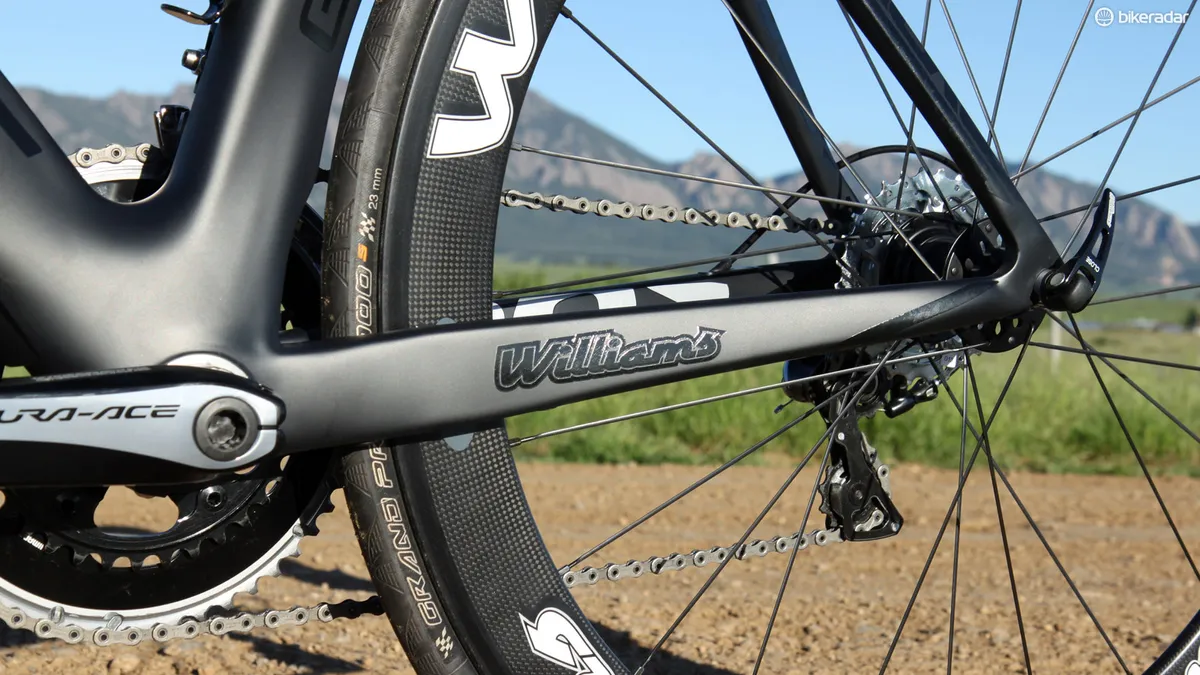
The bulbous bottom bracket area and chunky chainstays suggest a stiff lower end, but the Aeros Genesis is actually fairly soft
Frame: Open-mould design with good finish work
More astute readers might very well recognise the shape of the Aeros Genesis: it's essentially an open-mould design that Taiwanese manufacturer Trigon has made available for a few seasons now, and subtle variations of it are currently on the market under at least one other label.
That said, it's a pretty good execution.
Trigon builds the Aeros Genesis primarily with Toray T800 carbon fibres and, while that mid-range designation won't set anyone's hearts aflutter in terms of stiffness-to-weight ratios, it goes a long way toward explaining the cushy ride quality. Moreover, that blend's less brittle nature portends well for long-term durability and should also be more resistant to impact damage than more exotic fibres.
Actual weight for our 49cm frame (535mm effective top tube length) is 1,149g including the replaceable aluminium rear derailleur hanger, seatpost collar, water bottle bolts, and all requisite cable routing hardware. The matching all-carbon, 1 1/8-to-1 1/2in tapered fork adds another 458g – modest figures on both counts.
Some of that additional frame weight is invested in a meaty, threaded aluminium bottom bracket shell insert that Williams principal Keith Williams says was an absolute requirement in order to keep creaking and bearing durability issues at bay – a move we support. Meanwhile, the headset bearings drop directly on to moulded-in seats in the head tube, the convertible internal cable routing is easy to work with, and the overall finish work is very good.
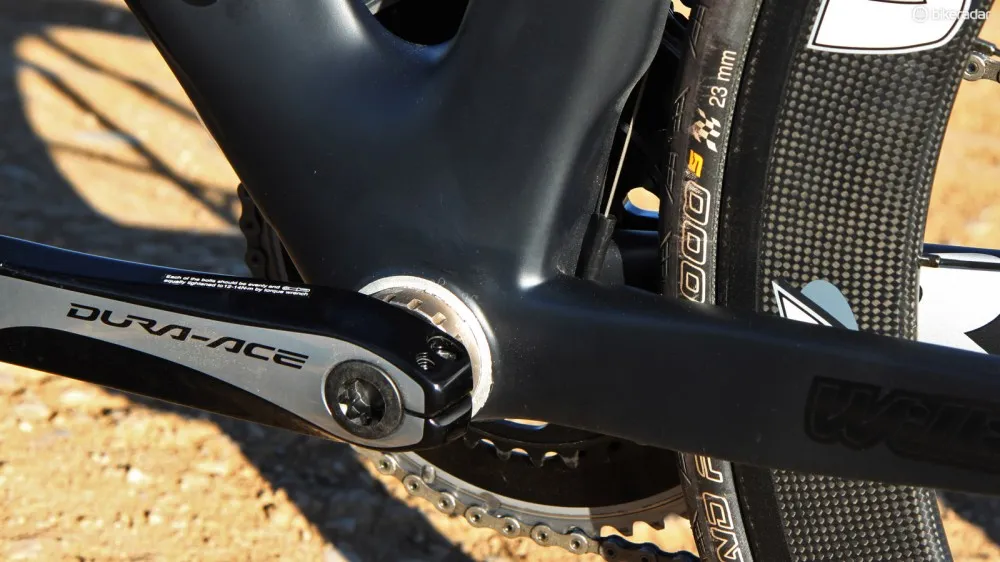
Kudos to Williams Cycling for specifying a threaded bottom bracket
That said, Trigon and Williams still need to sweat some of the finer details. The seatpost clamp, for example, generates far more pressure on the vulnerable flat sides of the post as the bolts are tightened down than we'd prefer, and the plastic cable guide beneath the bottom bracket isn't ideally shaped for optimal shift performance. We'd also like to see the internally routed rear brake cable retain its exit point on top of the top tube but enter on the bottom up front for a smoother path.
Finally, it was impossible to ignore the fork tip spacing, which we measured at 102mm – right on the edge of Williams' stated dimensional tolerances but still 2mm wider than it should be. This wasn't a safety issue of any sort but, especially when combined with the rather conservative lawyer tabs, made for rather slow wheel changes.
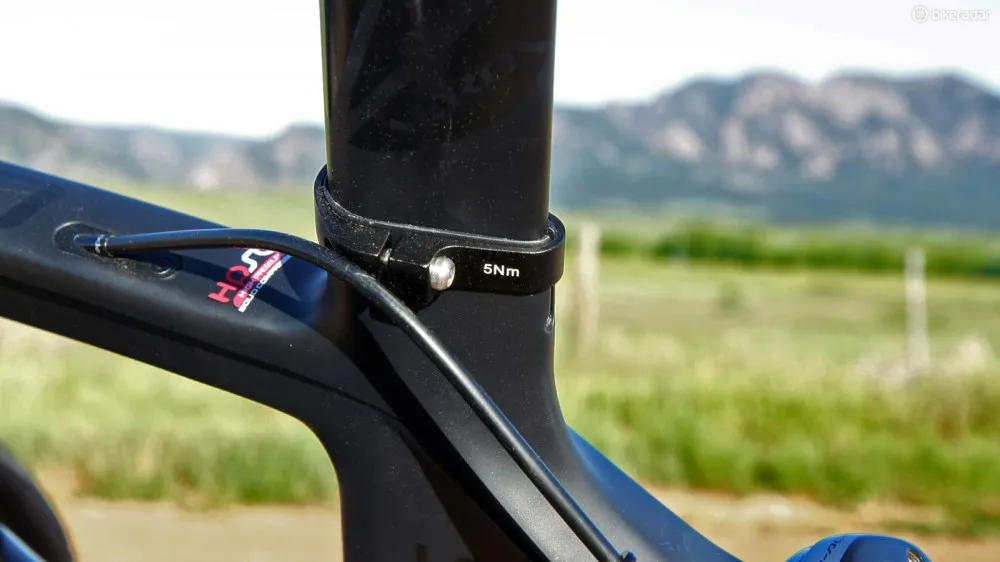
Certain details still could use some work
Equipment: Premium options with bargain basement pricing
As one would expect, Williams' consumer-direct business model yields some serious savings to the bottom line along with lots of options in terms of build kits and ancillary components. The frameset's US$1,899 (£1,114/AU$2,021 – at the time of writing) asking price might not seem like an astoundingly incredible deal to some, but the complete bike packages are impressively cheap – especially when compared to similarly equipped bikes sold through more traditional channels.
We went with the Shimano Dura-Ace package, which for only US$4,265 (£2,503/AU$4,539) includes a complete group (save for the Williams-branded steel 11-speed cassette), a carbon-railed saddle, carbon bars, and a carbon wrapped stem from Williams' house brand – including no-charge options for widths, lengths, rim depths, and gearing. Switching out the stock aluminium clinchers for carbon ones adds another US$650 for a grand total of US$4,915 (£2,804/£5,226).
Total weight as built was a reasonable 7.23kg (15.94lb).
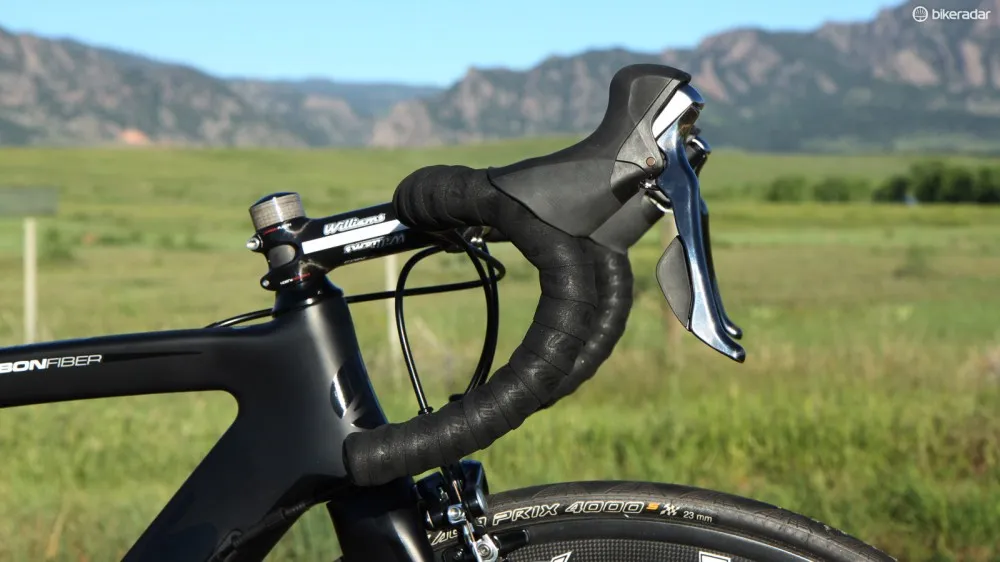
A Shimano Dura-Ace bike for under US$5,000? It's at least certainly hard to argue with the price
The Dura-Ace group performed just as we've experienced in the past, with strong and highly controllable brakes and exceptional lever feel. Williams includes Reynolds Cryo-Blue pads with its carbon wheels and they're impressively aggressive in terms of friction (although they also seem to generate a fair bit of heat).
Likewise, shift lever feedback was the usual light and snappy action. Front shifts were superb – particularly under full power – but we were somewhat let down out back as the Williams Evora cassette doesn't shift as smoothly as the Shimano unit. It's significantly noisier, too, particularly at more extreme chain angles.
As already mentioned, the 58mm-deep Williams carbon clinchers feel fast but need a little extra attention in swirling winds. Their weight is reasonable at just under 1,700g, though, and the rear hub has a refreshingly responsive six-degree engagement speed – a rarity on road wheels. Note, however, that Williams has updated this wheel since our test began with a wider and more rounded profile that should perform better in terms of handling.
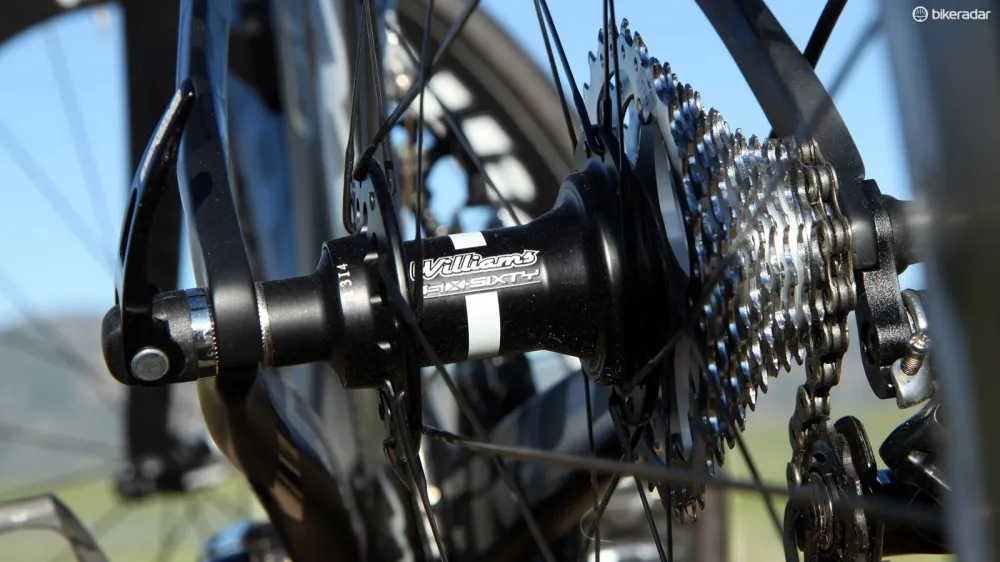
The Williams Cycling Six-Sixty rear hub is impressively quick to engage for a road setup
We've previously expressed concerns with inadequate testing of carbon clinchers in terms of heat management under heavy braking and in this case, Williams at least has test data to share, which in and of itself is reassuring to some degree. However, the test protocol isn't especially rigorous so we're still somewhat sceptical. We did ultimately use the included carbon clinchers on our usual downhill routes but were nevertheless mindful of rim temperatures.
We were mostly happy with the rest of the Williams-branded gear. The Élan CCS carbon bar is well shaped, appropriately stiff, and light at around 200g while the matching carbon-wrapped Force CCS aluminium stem likewise got the job done with no complaints. Fans of Selle Italia's SLR shape should be happy with the Williams Aurora SLC saddle, too.
The one exception was the included, proprietary carbon post. The cradle is adjustable fore and aft but even in the most rearward position and with the saddle slammed back on the rails, we couldn't even get a modest 5cm of setback. Williams says a new design is pending.
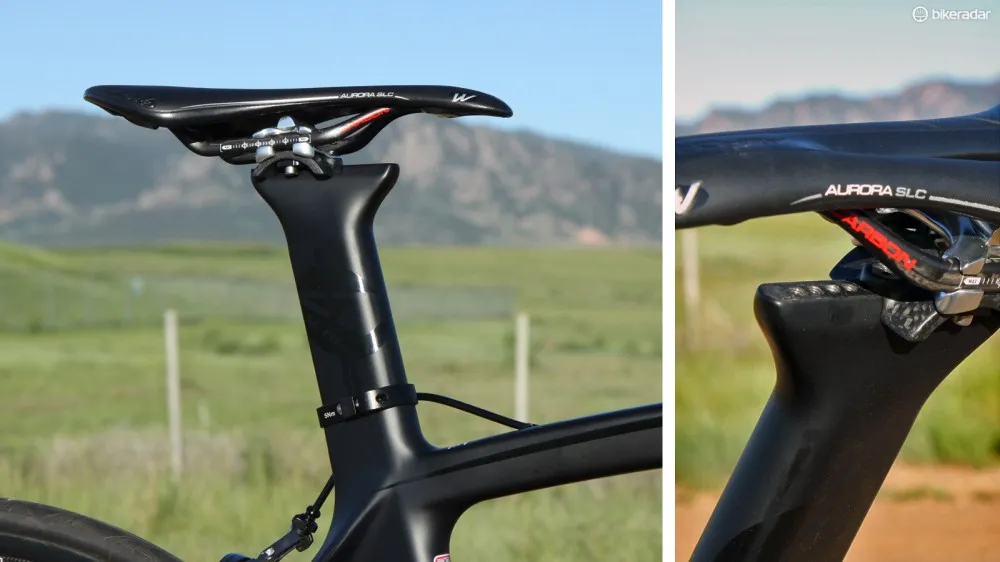
The aero carbon post looks nice but can't be properly adjusted for reasonable setbacks
The bottom line: You get what you pay for
While the Williams Aeros Genesis may not quite be the holy grail of stiffness, comfort, aerodynamics, and handling its rather hyperbolic marketing verbiage makes it out to be, it's still quite a good little machine – and a very good deal if you're after top-shelf parts but can't spend top-shelf prices.
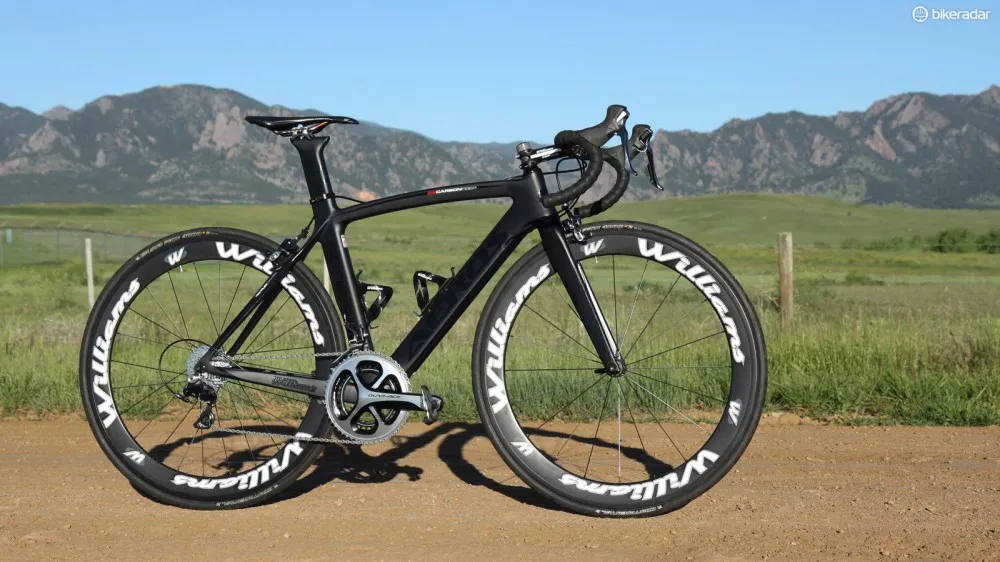
Complete bike specifications
- Frame: Williams Cycling Aeros Genesis
- Fork: Williams Cycling Aeros Genesis
- Headset: 1 1/8-to-1 1/2in tapered
- Stem: Williams Cycling Force CCS
- Handlebar: Williams Cycling Élan CCS
- Tape: Williams Cycling cork
- Front brake: Shimano BR-9000 w/ Reynolds Cryo-Blue carbon-specific pads
- Rear brake: Shimano BR-9000 w/ Reynolds Cryo-Blue carbon-specific pads
- Brake levers: Shimano Dura-Ace STI Dual Control ST-9000
- Front derailleur: Shimano Dura-Ace FD-9000
- Rear derailleur: Shimano Dura-Ace RD-9000
- Shift levers: Shimano Dura-Ace STI Dual Control ST-9000
- Cassette: Williams Cycling Evora
- Chain: Shimano Dura-Ace CN-9000
- Crankset: Shimano Dura-Ace FC-9000
- Bottom bracket: Shimano Dura-Ace SM-BB9000
- Wheelset: Williams Cycling Wheel System 58 Carbon Clincher
- Front tyre: Continental GP4000s, 700x23c
- Rear tyre: Continental GP4000s, 700x23c
- Saddle: Williams Cycling Aurora SLC
- Seatpost: Williams Cycling Aeros Genesis
